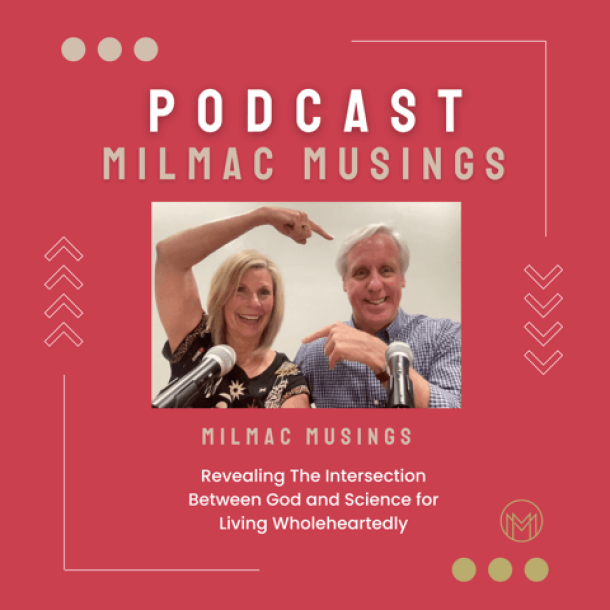Living Out Your Faith In Action

Living out your faith in action even when it seems contrary to what you might think is best—it's something that becomes a part of you over time. It is developed from yielding to the Word and promises of God. When I was led to write this series, I had no idea that I would get the opportunity to go through numerous challenging circumstances spread over a 90-day period and then get to share how living out my faith in action got me through to the other side.
In this, the next to last article of this fifteen-part series, we provide the biblical definitions of faith, translating your faith into daily actions and decisions, and practical ways to serve others and share Christ's love. Living out your faith is essential for living wholeheartedly and experiencing healthy relationships.
This article is the fourteenth of a blog series offering practical steps rooted in Christ and biblical principles to help you build resilience and trust in God's plan. Following these steps, you'll learn to navigate life's trials with faith and confidence, leaning on Christ's everlasting support.
If you missed it, click to read Practical Steps for Emotional Healing: Navigating The Aftermath of Abuse, the thirteenth article in this series.
If you missed it, click to read The Power of Of Community and Its Impact on Our Faith Journey, the twelfth article in this series.
If you missed it, click to read Overcome Obstacles With Grace, the eleventh article in this series.
If you missed it, click to read Understanding Self-Love and How To Attain It, the tenth article in this series.
If you missed it, click to read Developing A Christ-Centered Mindset for A Fulfilling Life, the ninth article in this series.
If you missed it, click to read Embracing God's Promises, the eighth article in this series.
If you missed it, click to read Overcoming Doubt and Fears Through Faith, the seventh article in this series.
If you missed it, click to read Trust: The Foundation of Healthy Relationships Part Two, the sixth article in this series.
If you missed it, click to read Trust: The Foundation of Healthy Relationships, the fifth article in this series.
If you missed it, click to read Trusting God with His Plan After Trauma, the fourth article in this series.
If you missed it, click to read Trusting God, the third article in this series.
If you missed it, click to read Building A Resilient Faith: Jesus Our Model, the second article in this series.
If you missed it, click to read Understanding Biblical Resilience, the first article in this series.
Biblical Definition of Faith
Now faith is confidence in what we hope for and assurance about what we do not see. Hebrews 11:1
Faith is a belief in something you hope for even though you cannot see that something or know how that something will happen. Without this kind of faith, it is impossible to please God (Hebrews 11:6). So, as believers, we live by faith, not by sight (2 Corinthians 5:7).
Having our hopes be in alignment with God's will in our lives gives us greater confidence and assurance that it will unfold in our lives.
Faith is not only believing. Faith is an action verb. Faith starts as small as a mustard seed and grows into the biggest tree. Just like a seed requires light, water, and fertilizer to grow, we as humans need the Light of the world, the Holy Spirit and the Word. As we grow, we learn to fully rely on our Heavenly Father for who He is, knowing He can do what He says He can do, and as His children, we are who He says we are.
Jesus taught about faith this way:
"Have faith in God! I can guarantee this truth: This is what will be done for someone who doesn't doubt but believes what he says will happen: He can say to this mountain, 'Be uprooted and thrown into the sea,' and it will be done for him. That's why I tell you to have faith that you have already received whatever you pray for, and it will be yours." Mark 11:22-24
Loving God, ourselves and others with empathy and grace are what help us to continue to run the race, even when what we hoped and prayed for comes in a different package than what we thought.
After all, God knows us better than we know ourselves, and He knows everything we need to fulfill the purpose and plan He has for us in this life!
A Personal Story of Living Out Your Faith in Action
Almost immediately, after enrolling in a 16-week course to better equip myself for the calling Jesus has given me three family members fell ill, requiring numerous doctor appointments, constant encouragement for their journeys, and dedicated child care. I faced deep uncertainty about their futures, but I knew that the only things in my power were to pray fervently, remain present, and provide encouragement—sometimes even minute by minute.
During this challenging time, I reconnected with someone I had previously known who expressed a desire to rebuild our relationship, promising unwavering love and significant changes. The thought that having a healthy partner might help make my life more manageable, led me to explore what a relationship with him might be.
At first, his words were kind and thoughtful, expressing I love you's and care. However, as I spent more time with him, I noticed significant gaps in our communication styles, values, and lifestyle choices. Most importantly, our faith needed to be aligned. Despite these red flags, I stubbornly tried to make the relationship work. The effort and attention required to maintain this relationship soon consumed my limited energy outside caring for my family. For the first time in years, I felt like I was in a constant battle, struggling to make something fit that did not. It was like trying to force a square peg into a round hole—no matter how much effort I put in, it wouldn't fit.
Eventually, I decided to step back from everything and unplug, allowing myself to be more present for my loved ones and gain clarity on this relationship. The time of reflection revealed that my empathy and desire for love and companionship, combined with his presence during such a difficult time, had distorted my thinking. However, I quickly saw that our potential partnership was not rooted in mutual respect, submission to Christ, or a genuine effort to build something meaningful. It was draining and an emotional roller coaster filled with drama without respect of the values I hold dear.
The relationship began to unravel when I chose to stand firm in my beliefs and adhere to my values. I grieved what seemed like a loss but praised God for revealing the truth. With His loving guidance, I could continue my journey, embracing self-love and grace.
Unplugging, implementing boundaries and limits, and spending intentional time with Jesus in prayer and His Word became a source of strength and resilience. As I sought Him daily, He renewed my mind, and I gained clarity. Scripture reminded me of His promises, and prayer became my refuge to pour out my heart and receive His guidance and peace. These practices deepened my trust in God and helped me navigate the challenges with renewed faith and purpose.
This experience taught me more about aligning close relationships with my faith and values. No relationship can flourish without mutual respect, shared faith, and a foundation in Christ. I also learned more about the value of boundaries—guarding my heart and prioritizing my well-being while staying faithful to my calling. This season taught me to discern the difference between temporary comfort and God's enduring plan for my life.
The reality was that this person did not understand my calling, did not encourage me in it, and even sought to pull me away from it and my family. Throughout this process, I shared my struggles with only two trusted friends, keeping my thoughts and experiences private until God revealed the truth and the direction I needed to take. When I did share my direction with others, it was with a loving and honest heart.
Ultimately, we were at different places in life. We did not share the same faith, values, or lifestyle choices. I am deeply grateful that God strengthened me to stand firm and live out my faith in action.
The best part is that I continue to be faithful to my calling. My loved ones are at the center of my life, and I am here for them as they continue their healing journey. And I finished my course with two weeks to spare! I call that resilience!
My trusted confidante reminded me of God's promise from Romans 8:28: "We know that God works all things together for good for those who love Him and are called according to His purpose."
Amen!

Translating Your Faith Into Daily Actions And Decisions
Below are the faith lessons I have learned over the years that became more alive by living them out.
- Embrace Prayer and Presence: In times of crisis, focusing on prayer and being present for loved ones provides strength and clarity.
- Recognize Red Flags in Relationships: Acknowledge when communication styles, values, or faith mis-align, as these are crucial for a healthy partnership.
- Value Self-Reflection: Taking time to unplug and reflect can reveal unhealthy attachments and help realign your thoughts with your values.
- Prioritize Mutual Respect and Shared Faith: Relationships thrive on a foundation of respect and shared beliefs, which leads to better emotional support.
- Establish Boundaries: Protect your well-being by implementing boundaries that honor your values and calling.
- Discern Temporary Comfort vs. Enduring Plans: Understand the difference between seeking immediate comfort and staying true to God’s longer-term purpose for your life.
- Share Struggles with Trusted Allies: Confiding in a few trusted friends can provide support while navigating personal challenges.
- Stand Firm in Your Beliefs: Staying true to your faith and values, even when facing emotional turmoil, is vital for personal integrity.
- Stay Committed to Your Calling: Keep your focus on your life’s purpose and those who support you in it, ensuring you remain aligned with your unique journey.
- Trust in God’s Guidance: Rely on prayer and scripture for direction, as God promises to work all things for good in accordance with His purpose.
- Reposition People: Love people equally, but not all people have equal access. Like Peter, James and John were the inner circle of Jesus and like an orchestra has 1st chair, 2nd chair, and 3rd chair. Unconditional love does not mean unconditional access, acceptance or tolerance.

Practical Ways To Serve Others And Share Christ's Love
I could have easily become consumed with only my problems during this challenging time. However, throughout this season, short as it was, I was able to spiritually and practically serve my family and share Christ's love. This was not something that just happened. It was through the teaching, discipline, love, and power of God transpiring in my life over a lifetime. Below are ways I served my family out of my heart of love:
- Attended Doctor Appointments: I helped organize and accompanied family members to their numerous medical appointments, prioritizing their health and well-being.
- Provided Emotional Support: I offered constant encouragement during their journeys, helping to uplift their spirits in very challenging moments.
- Dedicated Child Care: You ensured that the children received proper care and attention while other family members focused on recovering.
- Prayed Fervently: I engaged in heartfelt prayer for their health and futures, with a deep concern and hope for their well-being. Remained Present: I stayed actively involved in their lives, providing support and comfort even in the face of uncertainty.
- Engaged Community Prayer: I invited others to pray for strength, comfort, healing, and provision for my family and me!
I'll leave you with several practical ways to serve others and share Christ's love each day.
- Offer Prayer Support: Provide emotional and spiritual comfort through prayer during crises.
- Actively Listen: Being present and thoughtfully listen to loved ones' struggles.
- Identify Relationship Issues: Help friends recognize red flags and encouraging open conversations.
- Encourage Self-Reflection: Motivate others to reflect on their values and attachments.
- Model Mutual Respect: Foster environments that prioritize respect and shared beliefs.
- Set Healthy Boundaries: Teach the importance of boundaries to protect well-being.
- Differentiate Comforts: Guide friends to discern between temporary comforts and lasting commitments.
- Provide Support: Offer a safe space for friends to share their challenges.
- Encourage Faith Integrity: Remind others to stay true to their beliefs during tough times.
- Focus on Purpose: Assist individuals in staying committed to their life’s calling.
- Share Spiritual Resources: Helping others find comfort in prayer and scripture.
In our next article in this series we will address Cultivating Gratitude, Hope, and Joy in all Circumstances.






